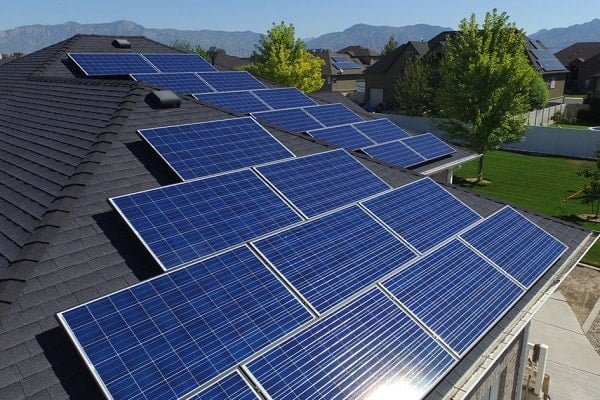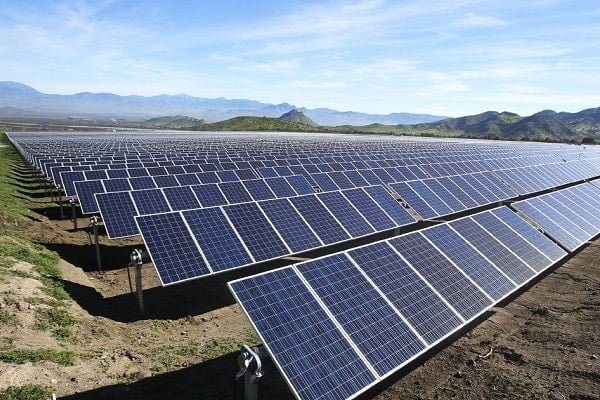Frequently Asked Questions - Corporate / Companies
Q: How does the Malaysian government finance for the Feed-in-Tariff System?
A: Our clients should know that the system known as FiT (or Feed-in Tariff) is not funded by the Malaysian government; rather, it is funded by the electricity consumers. 1% of the total electricity bill is contributed by these consumers for the RE fund. Consumers who make use of 300 units of electricity or lower per month cannot raise their tariffs to pay for the RE fund.
Q: Are there grants given by the Malaysian government for solar panel installation costs utilized by various companies and other business entities?
A: While some countries give grants for the installation costs of solar PV technologies, Malaysia does not offer these grants presently; however, there are many banks who are able to grant loans for purchasing solar systems at interest rates that are quite low because feed-in tariffs serve as guarantees for long term profits.
Q: Are there feed in tariff incentives available for companies that install RE technologies?
A: Yes. Fiscal incentives are available for business entities or companies including third-party exemptions imposed on machineries and equipment which includes solar PVs. These are usually given to distributors and/or importers of these products. By using these incentives, the prices of these systems are expected to be at a low rate as well.
Q: Are the other government fiscal incentives still applicable to the FiAH?
A: Investment tax allowance claims, import tax waiver, sales tax and other government fiscal incentives are still applicable to the FiAH. And as stated by the Y.B. Prime Minister, the effective date of these fiscal incentives is extended until the 31st of December 2015 (investment tax allowance) while the GBI buildings benefits is effective until 31st of December 2014.
Q: What if a commercial entity chooses to apply to the MIDA for a double tax relief for the current year but the renewable energy installation to utilize the solar PV as a renewable resource was commissioned in the middle of the following year, will the commercial entity still be awarded tax exemptions?
A: The double tax reliefs are applicable for applications made prior to the December 31, 2015 deadline up to this date. A year of project implementation period is given to the successful applicants. And if your submission is made prior to the deadline, the project may still be implemented at a later time; however, there will be an allowed time period given.
Q: How does anyone make an application for FiA (Feed-in-Approval) necessary for selling renewable energy at prevailing FiT rates?
A: There are two ways to become a feed-in approval holder. One, you can apply for the feed-in approval yourself, or two, you may secure the services of an authorized company to fill out the application on your behalf.
Q: When the feed-in-tariff commencement date depends on the availability of the distribution licensee, how can SEDA Malaysia facilitate for my feed-in-tariff commencement date?
A: There is a specific time frame or set target date for tariff commencement dates; however, the distribution licensee still needs to abide by the Renewable Energy Act 2011 that obliges them to initiate the interconnection and purchase of the renewable energy. It should also be noted that failure to perform the obligations would penalize the distribution licensee.
Q: What do we need to know about Energy Commission licensing? Is it a license for selling power back to a grid or license for the generation of solar power?
A: Power generation licenses obtained from the Energy Commission is mandatory, particularly for generators with 5kW and above; whereas, fees are charged at RM1.5/kW. PV power generation license fees are payable for 1 phase which has a capacity of more than 24kW and 3 phase for 72kW and above.
Q: Does the Tenaga Nasional Berhad support the Feed-in-Tariff system?
A: Yes. The Tenaga Nasional Berhad does support for the government initiative in promoting energy sources with low-carbon utilization. As stated by the Renewable Energy Act 2011, distribution licensees has the obligation to purchase renewable energy ad prioritize these purchases using non-renewable energy sources over electricity-generated sources.
Q: Should the Tenaga Nasional Berhad or any other distribution licensees, refuse to purchase the renewable energy I have generated, what should I do?
A: The Tenaga Nasional Berhad and the other distribution licensees are obligated to purchase the renewable energy generated by its producers. Furthermore, they are required to give priority to the energy generated from renewable energy sources compared to the energy generated from the non-renewable sources of energy. Also, there are penalties imposed for distribution licensees who fail to comply with the law.
Q: Is the feed-in-tariff income taxable?
A: Yes. Income from the feed-in tariff is subject to taxes. Any other exemptions require a policy given by the government.
Q: Will the FiT rate given under the RE power purchase agreement and the FiA be lessened in the next few years?
A: No. To guarantee the security of investments, a fixed FiT rate is applied for the next 21 years until a grid parity is given. Furthermore, the goal of the degression is to achieve grid parity at faster rates and increase efficiency while reducing costs.
Q: Should the RE power purchase agreement under the FiT system expire, what happens next?
A: If the RE power purchase agreement or FiA’s effectivity period reached its expiration, as the Feed-in Tariff Approval HolderFeed-in Tariff Approval Holder, you can re-apply for a new Feed-in Approval or FiA; however, Feed-in Tariff Approval Holders, including you, have to negotiate with the distribution licensees directly especially if grid parity has been achieved.
Q: Is the internal utilization of renewable energy allowed?
A: Yes; however, only RE installations connected at low voltages are allowed by the SEDA Malaysia. To be accurate, utilizing renewable energy is allowed only at 230V, 10kW and 400V, > 10kW and 425kW. More detailed conditions will be made available prior to the launching of the FiT system.
Q: Prior to the expiration of the REPPA, is going beyond the FiT rates provided on the contract possible for retail electricity tariffs?
A: Yes. As described in the even described as the attainment of grid parity in the RE Act 2011, the one responsible for paying the displaced cost is the FiA holder which is you as the company owner.
Q: Are there any requirements for Power Systems Studies?
A: Yes. Medium voltage RE installations require Power Systems Studies which also includes those with 180kW and above capacities installed.
Source: SUSTAINABLE ENERGY DEVELOPMENT AUTHORITY MALAYSIA
For more questions regarding Feed in Tariff, send us a message via the addresses provided here or visit the SEDA Malaysia’s official website for further information.







